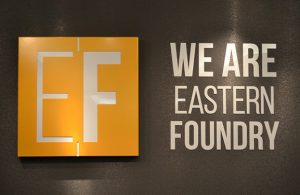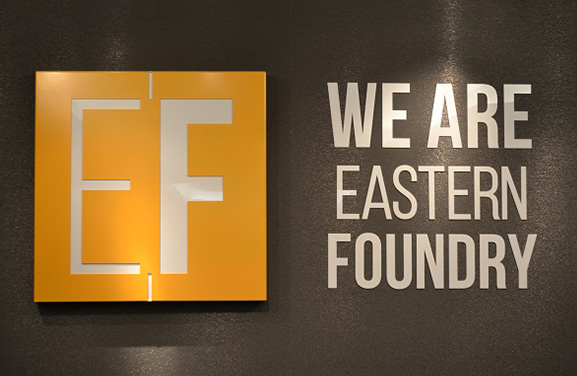
Government procurement – a path to SME growth?
In many countries Government is the biggest procurer of goods and services, which makes them an attractive client for small and medium scale enterprises (SMEs) seeking to get a leg up in business.
Recognizing the important role that the public sector plays as a purchaser of goods and services, as well as the critical role SMEs have for the economy, Governments frequently use Public Procurement to incentivize, support and otherwise sustain local SMEs.
Also, as in many of our client countries, where the vast majority of SMEs are informal, the lure of a significant Government contract can serve as a strong motivator to register and formalize – bringing these companies in from the shadows.
But there is also a significant downside in many countries. Cash-strapped governments frequently don’t pay their bills on time and, in some countries, payment delays of 12 months or even two years are not uncommon. Such delays can seriously compromise the position of a small scale enterprise which – with limited access to formal bank financing – relies critically on cash flow from its clients to sustain its business. A six month delay in receiving payment on a contract can easily put a small firm out of business.

We recently visited Eastern Foundry, a company in Arlington, Virginia, which helps American SMEs navigate the byzantine corridors of U.S. Government procurement.
The U.S. Federal Government allocates 23% of all Federal Contracts to American SMEs. Also it has small business set-asides for women-, veteran- and native American-owned SMEs. These preferential access policies provide succor for a dynamic American SME market while supporting key social goals. U.S. State Governments also have their own procurement schemes for local SMEs, which vary from those of the Federal Government. The total Government procurement market in the U.S. – both Federal and State – is massive, as is the SME share of that total.
It can be difficult to be successful in the U.S. Government procurement space. Just navigating the Federal Government’s procurement website Federal Business Opportunities can be challenging for the uninitiated.
Eastern Foundry provides a space in Arlington from which SMEs can operate and network. It holds informational and educational classes on government procurement, helps SMEs navigate the FBO website, and provides a networked location where Prime Contractors can connect with U.S. SMEs as subcontractors to help them meet the 23% target on SME collaboration.
Although Eastern Foundry doesn’t provide lines of credit or bridge financing, it can direct SMEs to banks and crowd funders, and can help them manage preferential rates. Although they can work with factoring and invoice financing, they prefer straight bank financing as they find that this is generally a cheaper alternative for SMEs. Equally interesting, the U.S. banks seem to prefer guaranteed income streams as the source of future loan repayments over other forms of collateral. Hence income from stocks and bonds, rental and pension income are all highly rated when trying to access SME credit.
Payment delays in the U.S. are less of an issue than in some of our client countries, with most U.S. Federal Government contracts paid out in 30 days. This payment is generally to the Prime Contractor, while the SME sub-contractors are typically paid within 90 days. Some large prime contractors, such as Walmart and General Electric, are said to have negotiated 120 day payment terms and these cause considerable stress for cash constrained US SMEs.
Can such models be useful in our SME support work?
– Linking public procurement and SMEs through public policy would be an important start, considering that some developing countries don’t even provide preferential SME access to government contracts.
– Developing “facilitation mechanisms” which target SMEs in public sector procurement could provide support. They could be designed to be more market-friendly than many interest subsidy systems which Governments promulgate in support of their SME sectors. Facilitation bureaus could help SMEs access finance, understand government contracting processes, support the development of SME networks, connect prime contractors with SME sub-contractors, or facilitate joint ventures involving SMEs.
– Overcoming government payment delays is a more difficult hurdle. Some countries, such as India, have legislation which stipulates periods within which Government contracts must be paid out. Others, such as Morocco, are working with the World Bank to address this issue. Using electronic factoring platforms to discount bills receivable could be another method to facilitate SME access to financing to participate in public procurement markets (albeit not a substitute for prompt government payment of their outstanding bills)!
– Equally exciting, recent research points to a “Growth” as well as an “Employment Generation” impact of linking public procurement with SMEs. The February 2016 paper “Procuring Firm Growth: The Effects of Government Purchases on Firm Dynamics” (Ferraz, Finan, and Szerman) assembled comprehensive data from Brazil and found that “winning at least one [government] contract in a given quarter increases firm growth by 2.2 percentage points over that quarter, with 93% of the new hires coming from either unemployment or the informal sector. These effects also persist well beyond the length of the contracts. Part of this persistence comes from firms participating and winning more future auctions, as well as penetrating other market”.
Maybe it is time for us to build beyond our traditional lines of credit to SMEs – and embrace more innovative methods of SME support – as headwinds slow the global economy and governments increasingly look to the SME sector not only to generate more jobs but to also help retain those jobs which they have already created. Could stronger links with public procurement provide an important key?
Written by Simon Bell
Co-Authors by Yolanda Tayler
Published by The World Bank
Image: Startup indubator Eastern Foundry (Image via Eastern Foundry)
https://blogs.worldbank.org/psd/government-procurement-path-sme-growth
Related Post
Equipping SMEs with the skills to...
SMEs and entrepreneurs heavily depend on skills to stay competitive and face greater challenges than larger firms in accessing and retaining...
The future of entrepreneurship with AI
AI-native startups are redefining the nature of entrepreneurship through accelerated scaling. With leaner teams, evolving funding dynamics, ...
Micro and small businesses can act...
In an international context where conflicts have reached their highest level since the Second World War, what role can micro, small, and med...





